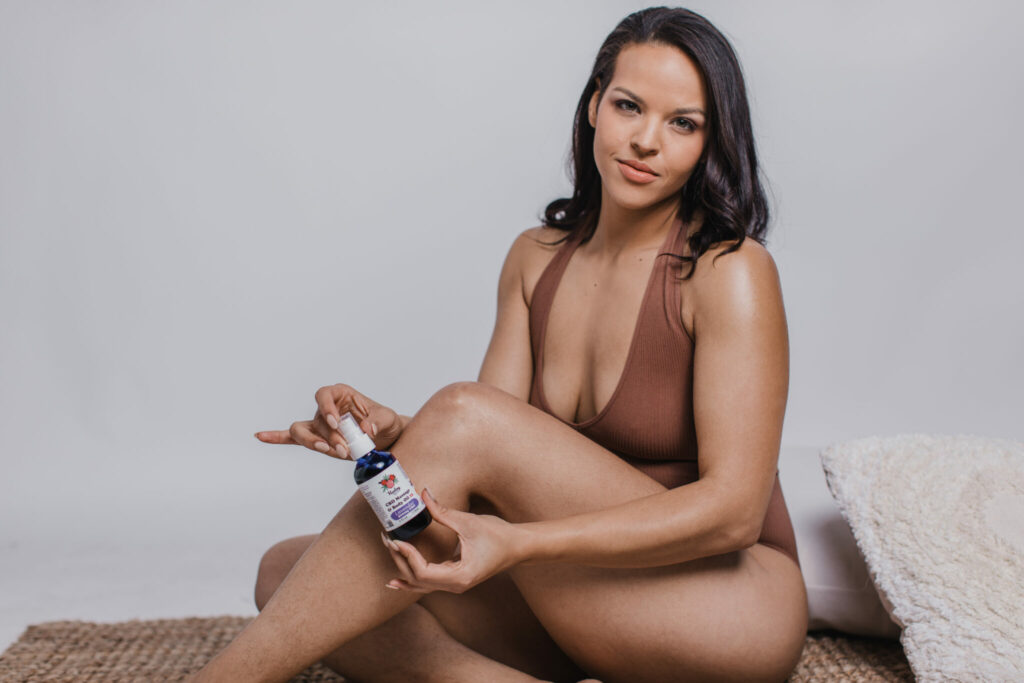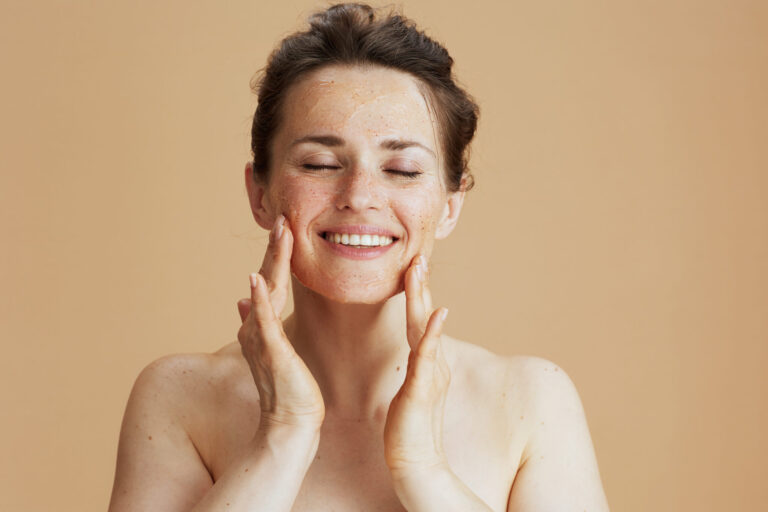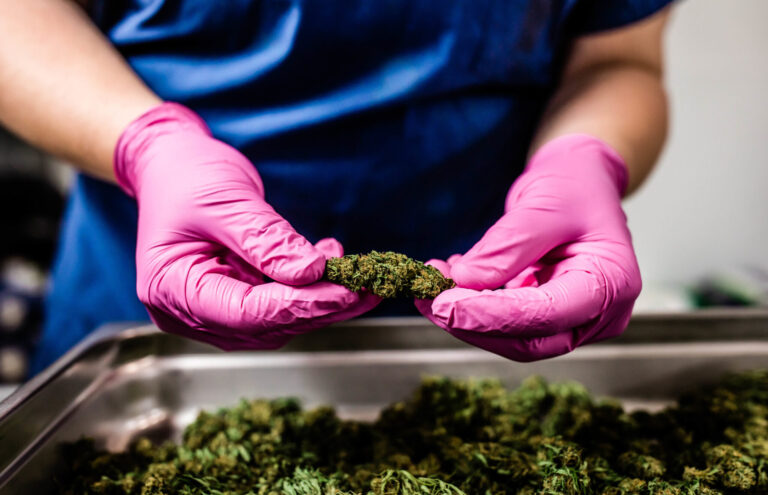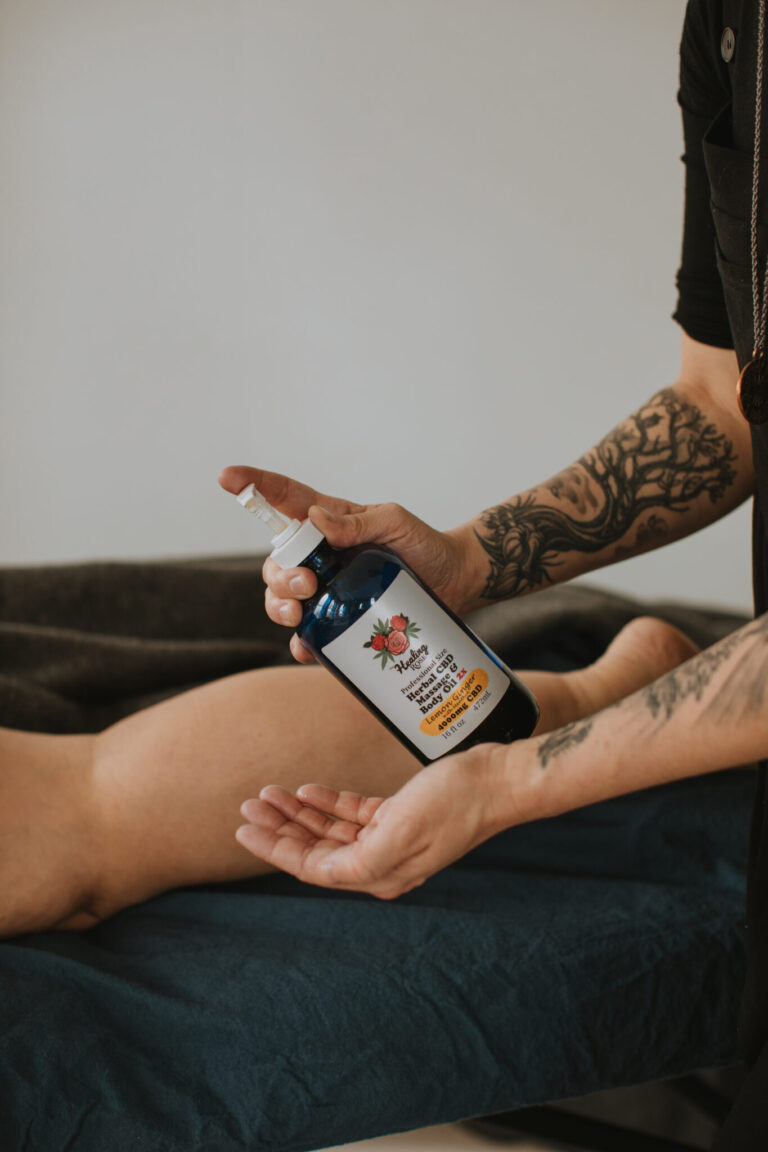
It’s an age-old debate: Is body oil better than lotion? You could ask 100 people about whether body oil or lotion is better and you’d most likely find a 50/50 split in your responses. Both products are often marketed to the same crowd: People who want softer, more supple skin. Some oils and body lotions even have similar ingredients, and you can even find lotions that claim to have body oil in them! It can get a bit confusing…
Here at The Healing Rose, we’re obviously huge fans of body oil. Our Massage & Body Oils are some of our most popular products, and, of course, we love these oils because we know their value. Just the same, we intend to give you a good, unbiased look at this debate we know all too well: body oil versus lotion.
The Case for Using Body Oil Instead of Lotion
Body oils can sink right through the pores to deliver all those valuable ingredients. The best-quality body oils are made with oils that are derived from food. Sunflower, jojoba, coconut, and almond oil are good examples. Research has shown that the body treats natural vegetable oils like something the body actually produced itself. Vegetable oils and bodily oils have lipid structures that are surprisingly similar in nature, and the body processes the oils through enzymatic decomposition.
In the aforementioned study, oils were noted as capable of helping with dry or cracked skin much like the body had produced its own oil. Additionally, oils seemed to do better at sealing in moisture when compared to paraffin-based products. The similarity in structure may also explain why a lot of dermatologists recommend using body oil to help with issues like acne and oiliness. Both can be caused by issues with the skin’s production and regulation of natural oils. For example, using a natural body oil may help counteract your skin’s overactive oil production which is often related to acne breakouts.
The Flip Side: Using Lotion Instead of Body Oil
Lotions are formulated with a mix of moisturizing agents and water. Water obviously absorbs into the skin faster than oil. Therefore, lotion can be a good go-to for a quick quench of moisturizing action. Unfortunately, while lotion can deliver rapid water-based moisture, the water can quickly dissipate and leave you reaching for lotion repeatedly just to keep the skin supple and moisturized.
Essentially, body oils deliver moisture and ingredients to the skin, but they also create a protective layer of film to lock in what moisture gets delivered. While some lotions have natural oils in them, many are made with synthetic products that do not lock in moisture that well. But, if you pick out a high-quality lotion made with natural oils, you can still get some impressive moisturizing benefits.
Settling the Body Oil vs Lotion Debate for Good
So, now that we have looked at the advantages of both body oil and lotion, you can see the answer may not be as definitive as anticipated (or maybe it is, it all depends on you!) Body oil has a list of advantages for your skin; it does an amazing job of locking in moisture, and can even deter certain skin issues. On the other hand, lotion does have its perks, especially if you are looking for quick moisturization. So, the verdict?
Body oil can be better than lotion for the skin, but both types of skin products have their advantages for different reasons. In fact, there is nothing saying you can’t use both body oil and lotion to get even more goodness for your skin. You could use lotion for general moisture delivery and Lemon Ginger w/ Menthol Herbal Massage & Body Oil to lock in moisture when you get out of the shower or if you need more therapeutic relief for your skin or problem areas.
Additional Questions About Body Oil and Lotion
Do you put on body oil or lotion first?
If you are using both body oil and body lotion, the general consensus is to use the lotion first and then add the oil to lock in that moisture. Since lotions are water-based, they may get into the skin faster, but if you are not doing anything to hold that moisture in, the added moisture can quickly dissipate. Body oil gives your skin that added layer of moisture-locking capabilities to keep the skin supple longer.
What is the difference between body cream and body lotion?
Is body cream the same as lotion? Technically, no. Both products can have similar ingredients, but creams are thicker and denser than lotions. An easy way to understand the difference is that lotions are an oil in water emulsion, where there’s a greater ratio of water than oil, and with creams it is the opposite, where they are a water in oil emulsion. In many cases, body creams will contain additional oils to achieve a more solid, creamy consistency.
What is the best body lotion?
Look for body lotion without mineral oil or petroleum, which are commonly used as bases in lower-quality lotions. Mineral oil may sound natural, but it is typically derived from petroleum products. Stick to natural or organic lotions that do not have chemical fragrance additives, artificial ingredients, or synthetic agents.
What is the best body oil?
Opt for all-natural body oil products, which are made with only natural ingredients. Likewise, go for organic ingredients; this ensures you are getting only the good stuff in your oil and no damaging agents. At The Healing Rose, we only use unrefined & certified organic ingredients. For example, our Lavender Massage & Body Oil with CBD is made with only eight ingredients, including organic avocado, organic sunflower, organic lavender oils, and CBD from organically grown hemp. We never add synthetic fragrances, unnecessary preservatives, or petroleum products.
We’ve Got You Covered with High-Quality Body Oils
If you are looking for a high-quality body oil with natural ingredients, we’ve got you covered. Our lineup of CBD-infused herbal massage and body oils are all made with organic ingredients and no unnecessary additives or agents. Take a look at our full selection of CBD Body Oils available in different sizes and formulas.
Copyright © 2025 The Healing Rose All Rights Reserved.
Site by CannaPlanners



